#alexey pajitnov
Text
In 1985, Soviet software engineer Alexey Pajitnov created the iconic video game Tetris.


#video games#game history#games#game#tetris#alexey pajitnov#technology#old tech#retro tech#tech#trivia#video game trivia#tetris trivia#retro#retro graphics#game44
237 notes
·
View notes
Text
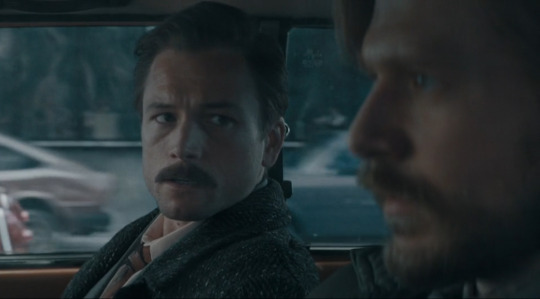
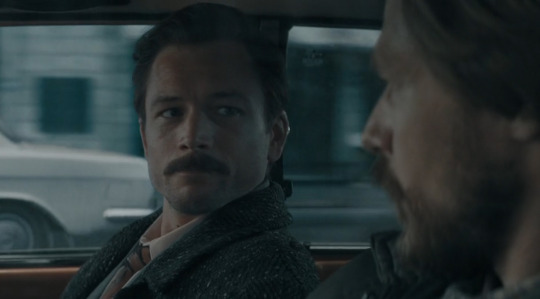

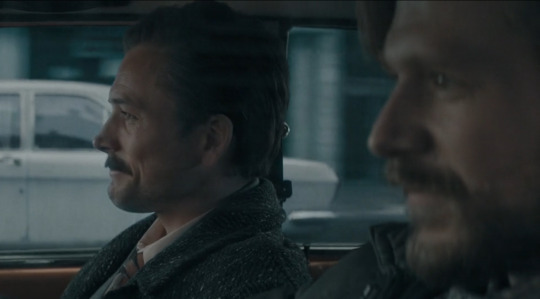
-How'd you know where to find us?
-It was easy. I thought, "What would I never do?'"
Henk's look of amusement and gratitude, with "that's my guy" written all over his face, and Alexey's answering smile.
Their smiles are identical. They're not just looking at each other. They're looking in the same direction.
#tetris 2023#tetris movie#alexenk#taron egerton#nikita efremov#henk rogers#alexey pajitnov#никита ефремов#тетрис
76 notes
·
View notes
Photo

Tetris on the Electronika 60 by Alexey Pajitnov (1984)
445 notes
·
View notes
Text
Tetris (2023) Review

Not going to lie, but using “The Final Countdown” as a song for your movie trailer immediately means the marketing team from Apple TV+ deserve a raise! That song slaps!!
Plot: Henk Rogers discovers Tetris in 1988, and then risks everything by travelling to the Soviet Union, where he joins forces with inventor Alexey Pajitnov to bring the game to the masses.
You hear a movie titled Tetris is coming out and one has to wonder if we have another Emoji Movie on our hands, where we’ll get little tetra shaped characters goofing about in some animated mathematics world trying to force an unfunny joke upon our poor heads. Then we get a random celebrity cameo like Orlando Bloom voicing an L-tetromino and making a joke that his character’s full name is Legolas. Actually, wouldn’t mind seeing that last part, just saying. Regardless, Tetris isn’t actually some ridiculous animated affair based on a pop culture phenomenon, but instead is the backstory for how the game was brought to the world masses. So no talking tetrominos, but instead we have ourselves a legal drama.
Look, before you all shut your eyes away upon the news of another legal drama, this movie is actually surprisingly engaging and the story of the battle for the licence of worldwide distribution of this little game is filled with twists and turns, as well as an element of spy espionage, due to the original game owners being Soviet Russia. That’s right, there’s an element of the Cold War in these proceedings, with Henk Rogers and others trying to persuade the Russians to sell them the rights, however as known the Russians don’t trust anyone. Speaking of the Russians, the communist backdrop is handled really well, with this idea that when in Moscow you’re always being watched, as well as digging into the corruption of the Soviet regime. Even Gorbachev shows up at one point, thought that element I imagine didn’t happen in real life and was more so added to up the ante of this film.
Speaking of upping the ante, even though many scenes revolve around characters sitting in rooms discussing legal stuff, the movie also involves car chases. That’s right, the writers definitely added a bit of a fictitious element to this story to make it more exciting for the casual viewer. I enjoyed that. It made this movie stand out more from others of its genre, and of the said car chase as well as other sequences, there are visual moments where the screen turns into this very early shonky computer graphic pixelated look, which I found to be quite the clever little gimmick. This backed up with an 80s techno soundtrack as well as various renditions on the classic Tetris theme made for an overall exciting watch.
Taron Egerton as always is super likeable and charming as Henk Rogers, in some ways channelling a young Gary Oldman, although maybe its just the Jim Gordon stache. The character of Rogers himself is the typical underdog one loves to root for. He’s the reckless entrepreneur who bets his entire house and life on this one game that he believes has the power to become something massive. He’s described by one of the other characters as “stupid but honest”, as Egerton leans into that heavily. His friendship bond he builds with the Tetris game creator Alexey Pajitnov (played by Russian actor Nikita Efremov in a very endearing way) is also really delightful, and a scene where the two of them go to a Soviet nightclub is a highlight. Roger Allam and Igor Grabuzov relish their villainous roles, and Toby Jones pops in doing some kind of European accent, though hard to pinpoint exactly which one.
Overall I really enjoyed Tetris, and was surprised at how the creative team managed to make this story as engaging as it is. Also naturally there is an element of nostalgia, as like many back in the day as a kid I used to enjoy rinsing Tetris. I even had a little handheld console that was designed specifically for Tetris. It wasn’t the branded stuff like the GameBoy (though I had that too for Zelda and such); it was literally this little Tetris console my dad got me in Russia, and that was the beginning of my screen addiction, which later turned into my smartphone....dark times. Regardless, a solid watch and currently my favourite film so far this year, though that’s not a difficult feat seeing as thus far this year’s movie releases have been really average. I look forward to the inevitable Rock, Paper, Scissors movie!
Overall score: 7/10
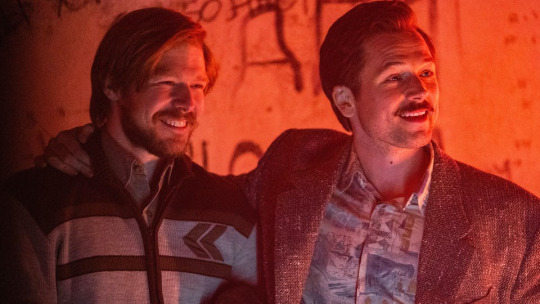
#tetris#apple tv+#Apple TV#taron egerton#tetris movie#tetris film#tetris 2023#2023#2023 in film#2023 review#soviet union#thriller#drama#legal drama#nikita efremov#video games#jon s. baird#roger allam#henk rogers#alexey pajitnov#movie#film#movie reviews#cold war#film reviews#toby jones#sofya lebedeva#ben miles#igor grabuzov#ken yamamura
69 notes
·
View notes
Text

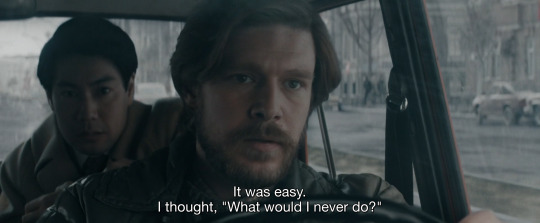
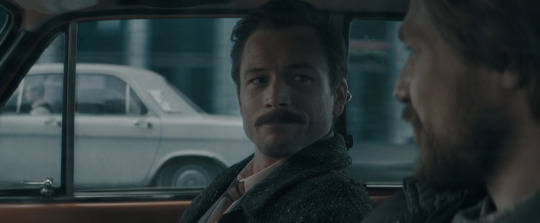
Tetris (2022) dir. Jon S. Baird
9 notes
·
View notes
Text
One of the reasons why I don’t care too much that the movie wasn’t historically accurate was that Alexey and Henk signed off on it. More importantly, I think this quote encapsulates why accuracy (can’t believe I’m typing this) isn’t the most important thing sometimes.
“We did our part to make it as truthful as possible, but we always understood we needed to compromise on several points. At the end of the day, we have our lives squeezed into the very short two-hour movie, and some exaggeration is kind of natural at that point. But I want to say that, spiritually and emotionally, it’s a very right and very truthful story told from the screen.” - Alexey Pajitnov
42 notes
·
View notes
Text


By Sarah Kuta
September 20, 2023
Tetris is one of the world’s best-selling video games and even the subject of a recent film — but the beloved 1980s digital puzzle may also help improve your mental health.
More specifically, psychologists are studying whether playing Tetris can help reduce the number of flashbacks or intrusive memories people have after a traumatic experience, such as sexual assault, a car accident, combat, a natural disaster, or a difficult childbirth.
Most people — roughly 70 percent — have had some traumatic experience in their lives.
But only a small fraction of the population, around 4 percent, will develop post-traumatic stress disorder (PTSD), a diagnosable psychological issue with symptoms ranging from sleep disturbances to self-destructive behaviors.
But whether trauma leads to full-blown PTSD or not, painful memories can spring to mind without warning.
Flashbacks are not only emotionally distressing, but they can also make it difficult to concentrate, which can lead to problems at work or school.
These intrusive memories often pop up as a picture or a short movie in our mind’s eye.
Against this backdrop, British psychologist Emily Holmes wondered if she could reduce the number of flashbacks people had by giving their brains a competing image to focus on shortly after they experienced trauma, while their memories were still forming.
The painful recollection would still exist, it just wouldn’t intrude as often.
“The human mind isn’t like a video camera — it doesn’t just immediately record everything we’ve experienced,” says Emily Holmes, a psychology professor at Karolinska Institutet and Uppsala University in Sweden.
“It actually takes some time, possibly hours, before a memory gets solidified into mind. What we were interested in was: Is there something we can do as the memory is still consolidating that would help it not become a flashback?”
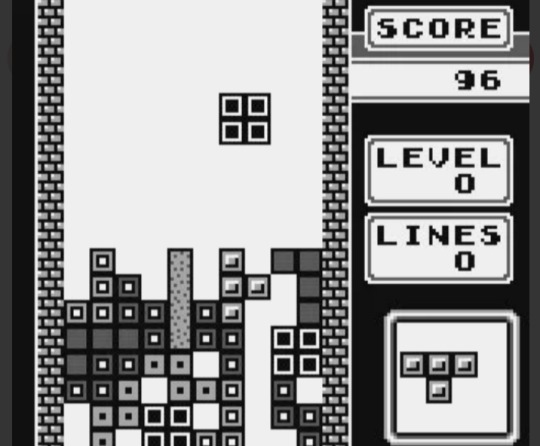
A ‘cognitive vaccine’
Her team began testing an array of visuospatial tasks that involve generating or manipulating images in the mind’s eye, such as imagining a constellation or tapping out a complex pattern.
One day, a student suggested they try a video game — and Tetris became the obvious answer.
“It involves colors, it involves space because you’re having to move blocks around to complete lines and, critically, it requires you to rotate the shapes in your mind’s eye,” Holmes says.
“You really have to use your mental imagery skills because you’re trying to fit the blocks into the right place.”
They started to experiment with Tetris — first, in the lab, by showing participants a traumatic film and, later, in the real world, by meeting with people in hospital emergency departments who’d just been in car accidents.
In both settings, people who played Tetris within hours of the trauma experienced significantly fewer flashbacks over the course of the next week compared to those who didn’t.
(58 percent fewer in the film study, and 62 percent fewer in the car accident study)
Based on the promising results of this proactive, preventative approach — which Holmes describes as being like a “cognitive vaccine” — they next turned their attention to established memories.
“The reality is, we’re not going to be able to get to most people within a few hours of a traumatic event occurring,” she says.
“People can have intrusive memories for years or decades, so clearly we need to do something for those older memories.”
In one study, Holmes’ team asked people receiving treatment for PTSD to focus on a specific flashback while playing Tetris for 25 minutes once a week for several weeks.
By the end of the experiment, participants saw a 64 percent reduction in the number of times that specific memory popped up, as well as an 11 percent reduction in memories they hadn’t targeted.
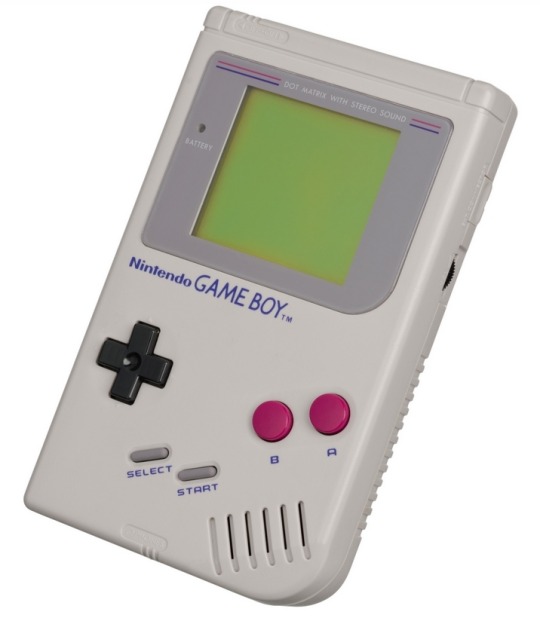
In another study, they worked with intensive care unit nurses who had established intrusive memories — including many that were more than three months old — of traumatic events from the COVID-19 pandemic.
After four weeks, nurses who played Tetris experienced one-tenth the number of intrusive memories compared to those who did not play.
They also reported improvements in other symptoms, such as insomnia, anxiety, and depression.
Overall, nurses who played Tetris saw a 73 to 78 percent reduction in flashbacks.
As Holmes points out, there’s probably nothing special about Tetris specifically.
She suspects any task with high visuospatial demands — like drawing, doing a jigsaw puzzle, or making mosaics — might achieve similar results.
However, tasks that are verbally distracting, like doing a crossword or reading, probably wouldn’t work as well.
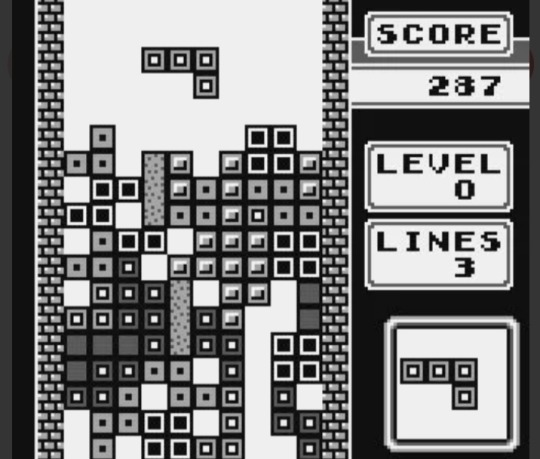
Tetris as a coping tool
Importantly, in their experiments, researchers aren’t just handing over a Game Boy and telling people to start playing Tetris.
Rather, they first ask participants to call to mind a particularly bad piece of a memory, called a hotspot.
Then, during gameplay, they instruct patients to mentally rotate the shapes, called tetrominoes, in their mind’s eye before they fall into the field of play.
They also ensure participants play Tetris for a sufficient length of time, usually between 10 and 20 minutes.
So far, all of their work has involved this procedure, which the researchers suspect is important to achieving results.
“Historically, intrusive memories of trauma are quite difficult to treat because they’re stuck in your mind for a reason — your brain’s gone into red alert and is trying to keep you safe,” says Holmes.
“They’re just really tricky things to alter. So if you’re just playing a game, it may help take your mind off things or reduce distress, but it might not help stop the flashbacks from intruding in the future.”
Still, playing Tetris on your own, without following the research procedure, likely won’t hurt you — and it may even help you feel better.
Canadian therapist Morgan Pomells recommends it to her clients as a coping tool for soothing feelings of anxiety or hyperarousal.
She doesn’t use Tetris during therapy sessions but, rather, suggests it as a potential option for moments when distressing memories or mental images arise during daily life.
“It’s one of the tools in the toolbox,” she says.
“A lot of people find it to be really helpful, especially people who have a really visual element to some of the symptoms they experience.
Turning to Tetris and being able to really sink into that game, even just for a couple minutes, allows them to feel a little safer and it really quiets their minds.
And when they resurface, they’re in a calmer state and actually able to take stock of their surroundings.”
However, Pomells cautions, Tetris or any other type of coping tool is not a substitute for seeing a therapist.
Holmes echoes that sentiment, adding that people who are suffering from flashbacks should first seek evidence-based treatment from a healthcare provider.
While Tetris may eventually become an evidence-based treatment itself, right now, researchers are still in the early stages of gathering clinical evidence.
“This is more of a journey of curiosity,” says Holmes.
Additional clinical studies are underway now. In the future, researchers also hope to test the long-term effects of Tetris on flashbacks, as well as understand what’s actually happening in the brain.
More broadly, they want to see if Tetris is effective at reducing intrusive memories related to other conditions beyond trauma, such as substance abuse disorders and depression.
“Mental images can haunt people in a variety of forms and I think it’s a real scientific challenge of the future,” says Holmes.
“It’s like being a physicist some centuries ago. We’ve just started to see the stars and planets, now we’ve got to go explore them.”
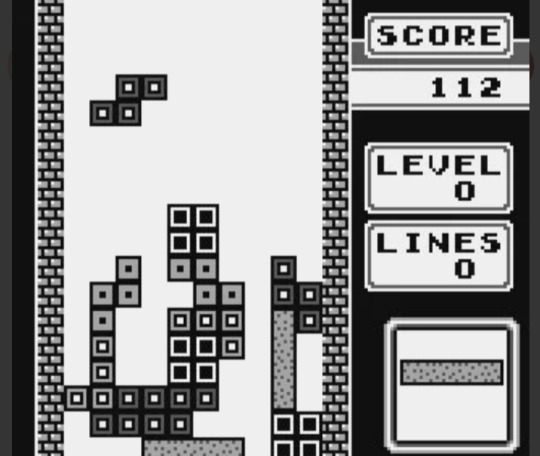
Tetris is a puzzle video game created in 1985 by Alexey Pajitnov, a Soviet software engineer.
It has been published by several companies for multiple platforms, most prominently during a dispute over the appropriation of the rights in the late 1980s.
After a significant period of publication by Nintendo, the rights reverted to Pajitnov in 1996, who co-founded the Tetris Company with Henk Rogers to manage licensing.
—
Alexey Leonidovich Pajitnov (born April 16, 1955) is a Russian computer engineer and video game designer who is best known for creating, designing, and developing Tetris in 1985 while working at the Dorodnitsyn Computing Centre under the Academy of Sciences of the Soviet Union (now the Russian Academy of Sciences).
#Tetris#video games#mental health#mental heath awareness#mental heath support#1980s#80s#20th century#digital puzzle#traumatic experience#trauma#post-traumatic stress disorder (PTSD)#PTSD#flashbacks#memories#psychology#cognitive vaccine#Game Boy#Alexey Pajitnov#puzzle video game#Nintendo#Tetris Company#Alexey Leonidovich Pajitnov
11 notes
·
View notes
Text

2024-03-22, 1000, “Tetris 1989”
#1000#jigsaw puzzle#jigsawpuzzle#jigsaw#puzzle#complete#blue kazoo#bluekazoo#video games#Nintendo#NES#Tetris#alexey pajitnov#pajitnov
3 notes
·
View notes
Text
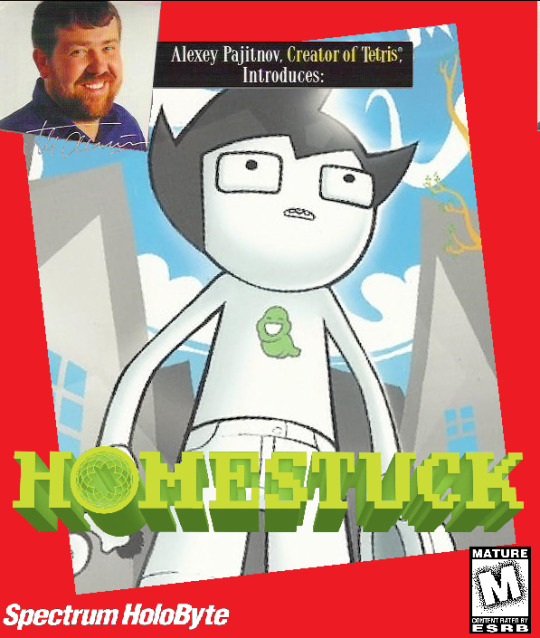
finally, the creator of tetris released a new game! i cant wait to play it after i finish my game of qwirks!
#homestuck#shitpost#alexey pajitnov#john egbert#spectrum holobyte#i dont know who made that homestuck john in the suburbs art#probably andrew hussie#i just yoinked it off of google#also i am horrible at cropping out images from other images#i dont use photoshop tho#i use paintnet#woops!
2 notes
·
View notes
Text
BreakThru! (Windows 3.1, ZOO Corporation, 1994)
A SameGame clone endorsed (along with WildSnake and ClockWerx) by Tetris creator Alexey Pajitnov. You can play it in your browser here.
Tips: the in-game help is a must - it'll tell you how to your the items and block-dropping mechanic to clear levels.
The copy protection may have been cracked but in case it wasn't, fortunately, the Mac version has the same copyright protection info, which you can find here.
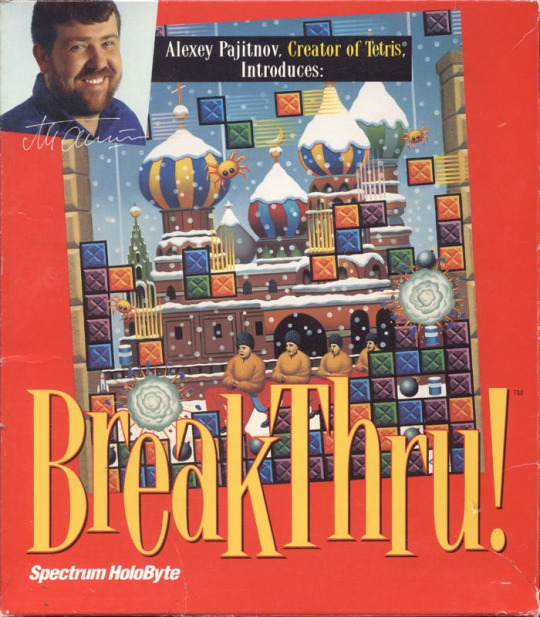
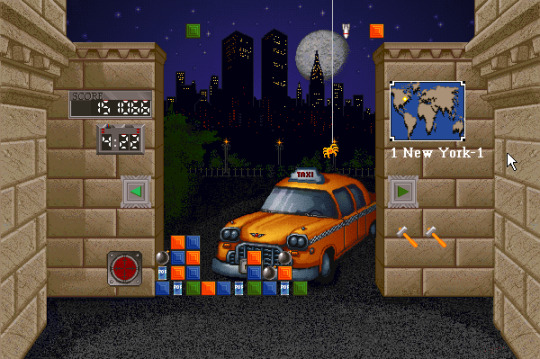
#internet archive#in-browser#windows 3.1#game#games#video game#video games#videogame#videogames#computer game#computer games#puzzle game#puzzle games#obscure game#obscure games#alexey pajitnov#1994#1990s#90s
2 notes
·
View notes
Video
youtube
🎮 Tetris (Game Boy)
Complete Gameplay: https://youtu.be/RwD8iRHKLME
#Tetris #GameBoy #Nintendo #BulletProof #Movie #NGB #Elorg #Puzzle #AlexeyPajitnov #Filme #HenkRogers #任天堂 #ゲームボーイ #Viciogame #Gameplay #Walkthrough #Playthrough #Longplay #LetsPlay
#tetris#gameboy#game boy#nintendo.#bullet-proof#movie#ngb#elorg#puzzle#alexey pajitnov#filme#henk rogers#viciogame#gameplay#walkthrough#playthrough#longplay#let's pl#任天堂#ゲームボーイ
3 notes
·
View notes
Video
youtube
The Creator of Tetris Talks to Adam Sessler About Game Development in th...
6 notes
·
View notes
Text

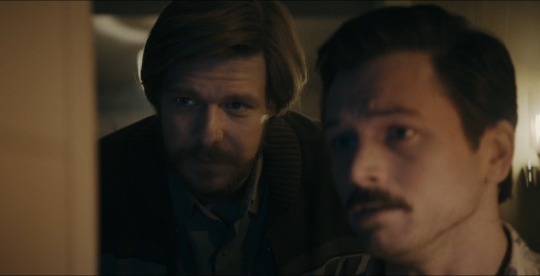
@gavimp we should have known this scene was absolutely canon. 😏
#tetris 2023#tetris movie#alexenk#taron egerton#nikita efremov#henk rogers#alexey pajitnov#parallels#looks like they're in Pajitnov's apartment in the U.S. idk#like there's that CARPET on the wall that's super Russian#and at the same time he's wearing a Tetris T-shirt that was obviously made in the U.S.
16 notes
·
View notes
Link
How accurate is the Tetris movie to the true story?
The Tetris movie is more or less accurate, but it definitely exaggerates key details for the sake of a more exciting movie. For example, the pretty young blonde woman, Sasha (Sofia Lebedeva), who serves as Rogers’ interpreter and ally in Russia is revealed to be a KGB agent, and this is meant to be a big moment of betrayal. Gasp! The reality was not nearly so dramatic. The real Rogers always knew she was KGB when he hired her.
In a 2014 essay written for The Guardian, for the 30th anniversary of the game, Rogers wrote, “I hired an interpreter [whose name was actually Ola, not Sasha] from a booth in the lobby of my hotel. They were all KGB, but she was beautiful and very perky, when everybody else was doom and gloom. She took me to Elorg, but she wouldn’t take me in because I hadn’t been officially invited. I was breaking a cardinal rule – trying to do business on a tourist visa – but I told her I hadn’t come all this way for nothing.”
There was also never a high-speed car chase between Rogers and the KGB, as you see in the movie, which ends with Taron Egerton successfully hopping on a plane out of Russia. In reality, Rogers took a very normal, uneventful flight home. (There is even home video footage of him dozing on the plane in the BBC documentary.) In fact, most of the KGB drama seems to be largely exaggerated. It is true that Roger Maxwell used his connections to former Soviet Union president Mikhail Gorbachev to pressure Belikov, even threatening him, into giving the Maxwells the rights to Tetris. But the plot line of a KGB agent who was secretly working for Maxwell is entirely invented.
There was also an entire legal battle between Atari and Nintendo in the U.S. over console rights to Tetris that was cut from the movie. This played out over a series of lawsuits, with Nintendo coming out as the winner. But that wouldn’t be a very compelling movie scene, now would it?
Where is Henk Rogers now?
The real-life Henk Rogers, now 61, is currently the managing director of The Tetris Company, which he co-owns with Alexey Pajitnov. The company was founded in 1996 and handles all of the Tetris rights. The real Rogers met with the movie director Jon S. Baird while the Tetris film was being made, and even attended the movie’s premiere at the 2023 South by Southwest Film Festival in March.
#article#tetris#video games#video game history#tech history#technology history#USSR#Henk Rogers#movies#film#1980s#cold war#russia#Alexey Pajitnov#nintendo#Mikhail Gorbachev#Atari#history#20th century
2 notes
·
View notes
Text
Taron Egerton and the "Tetris" Team Talk New Film
(more…) “”

View On WordPress
#Alexey Pajitnov#Apple#apple tv#Henk Rogers#interview#Jon S Baird#Taron Egerton#Tetris#Video Game film#video-game
2 notes
·
View notes
Text

Tetris (2022) dir. Jon S. Baird
8 notes
·
View notes